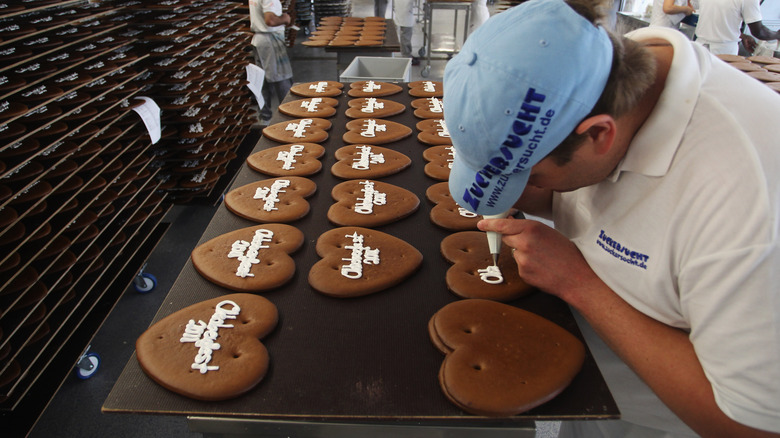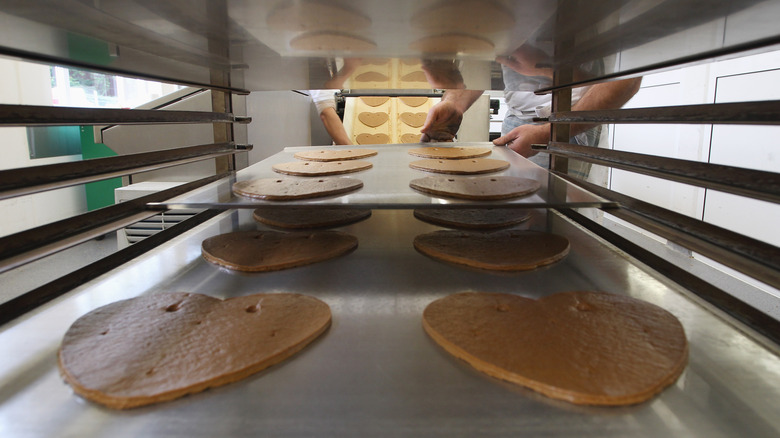These Classic German Cookies Are Better If You Age The Dough
As anyone who frequently bakes cookies knows, it's not just the ingredients that determine the flavor. Sure you could brown the butter or add an extra egg yolk, but even the state of your baking pan and how long you rest the dough can make a significant difference. According to recipe developer Caitlin Haught Brown (via Martha Stewart), cookies turn out best when the dough has been refrigerated anywhere from 30 minutes to 24 hours. Not only does this give the butter a chance to firm up so the cookies won't fall flat in the oven, but it also allows the flavors of the vanilla and sugar to develop. As Epicurious explains, the spices mellow out so they taste warm and flavorful but without the bite.
Unrefrigerated cookie dough will still yield delicious results, but for one type of cookie, the extra step isn't optional. According to Quick German Recipes, Lebkuchen cookies require aging for several months.
Why are Lebkuchen cookies aged for so long?
The main reason Lebkuchen cookies have such a long resting period has to do with Lebkuchengewuerz. This ingredient is a German spice mix consisting of cinnamon, cloves, cardamon, nutmeg, ginger, and sometimes anis, coriander, orange peel, lemon peel, and rosewater, My Dinner shares. Like any spiced cookie, the flavors are enhanced after a good rest in the fridge, but with Lebkuchen it's all the more important because the recipe also calls for baker's ammonia.
Per Quick German Recipes, baker's ammonia, known as hartshorn in German cooking, is used for baked goods with more dense doughs that need to be rolled out. Hartshorn is a leavening agent, but it doesn't work the same way as baking soda or baking powder. Whereas baking soda and baking powder would lose their effectiveness after too long in the fridge, ammonia is activated by heat. Lebkuchen needs a long time in the fridge in order for both the spices and the enzymes to develop, but the resulting taste is well worth the long wait.

